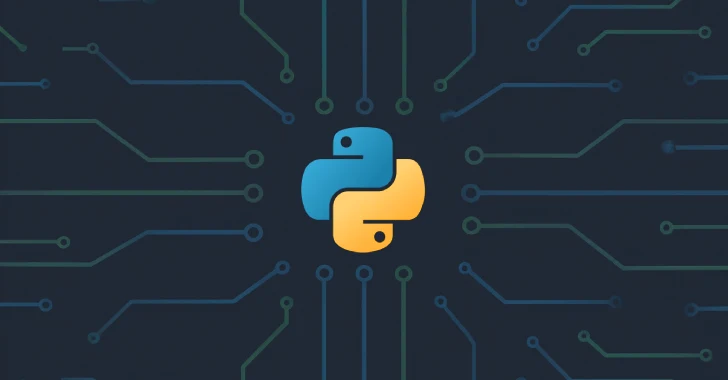
PyPI Blocks 1,800 Expired-Domain Emails to Prevent Account Takeovers and Supply Chain Attacks
PyPI Fortifies Supply Chain: Over 1,800 Expired-Domain Emails Blocked to Counter Account Takeovers
The digital landscape of software development is in a constant state of evolution, and with innovation comes new attack vectors. One subtle yet potent threat often lurks within the seemingly benign realm of domain name expiration. The Python Package Index (PyPI), a cornerstone for millions of Python developers, has recently taken a significant stride in bolstering its security posture by actively blocking over 1,800 emails associated with expired domains. This proactive measure directly addresses the risk of account takeovers and the insidious threat of supply chain attacks that can arise from compromised credentials.
The Vulnerability of Expired Domains in Software Supply Chains
At its core, the vulnerability exploited through expired domains hinges on a simple principle: when a domain name used for an account’s email address expires, it eventually becomes available for re-registration by anyone. If an attacker acquires this expired domain, they can then intercept password reset emails or other authentication communications directed to the now-controlled domain. This grants them unauthorized access to the associated accounts, including those on critical platforms like PyPI.
In the context of the software supply chain, this vulnerability is particularly dangerous. A compromised PyPI account belonging to a maintainer can lead to:
- Malicious Package Uploads: Attackers can upload nefarious versions of popular packages, embedding malware or backdoors that then propagate to countless downstream projects.
- Unauthorized Package Modifications: Existing legitimate packages can be tampered with, introducing vulnerabilities or malicious code that unsuspecting users then download.
- Reputation Damage: The integrity and trustworthiness of the PyPI ecosystem, and by extension, the entire Python community, can be severely undermined.
This attack vector, though less publicized than direct code injection, represents a serious threat. It leverages an often-overlooked aspect of digital hygiene – domain ownership – to achieve high-impact compromise.
PyPI’s Proactive Defense: Blocking Expired-Domain Emails
PyPI’s recent announcement marks a significant enhancement to its security infrastructure. According to Mike Fiedler, a PyPI safety and security engineer at the Python Software Foundation, “These changes improve PyPI’s overall account security posture, making it harder for attackers to exploit expired domain names to gain unauthorized access to accounts.”
The implementation of this new security check means that PyPI will now actively identify and block email addresses linked to expired domains during account creation, password resets, or potentially even during login attempts if an existing account’s email domain has expired. By preventing the use of these vulnerable email addresses, PyPI effectively cuts off a key avenue for attackers to seize control of legitimate developer accounts. The reported blocking of over 1,800 such emails underscores the scale of this potential issue and the effectiveness of PyPI’s new defense mechanism.
Broader Implications for Supply Chain Security
PyPI’s initiative serves as a critical reminder for other major software repositories and online services to implement similar checks. The threat is not unique to PyPI; any platform where user accounts are tied to email addresses is susceptible if those email domains are allowed to lapse and be re-registered by malicious actors. This proactive approach strengthens the overall cybersecurity posture of the open-source ecosystem, protecting developers and end-users alike from potentially catastrophic supply chain compromises. It highlights a growing industry trend towards layered security, where even seemingly peripheral vectors are considered and mitigated.
Remediation Actions and Best Practices for Developers and Organizations
While PyPI has taken a commendable step, users also bear responsibility in maintaining their own security. Here are actionable steps for developers and organizations:
- Regularly Verify Domain Ownership: Ensure that all domains associated with your professional email addresses (especially those used for critical development platforms) are current and renewed well in advance of their expiration dates.
- Use Strong, Unique Passwords: Even with secure email, a weak password remains a significant vulnerability. Employ complex, unique passwords for each service, ideally managed with a reputable password manager.
- Enable Multi-Factor Authentication (MFA): Where available, always enable MFA. This adds a crucial layer of security, as even if an attacker gains access to your password, they still need a second factor (e.g., a code from an authenticator app, a hardware token) to log in. PyPI strongly encourages and supports MFA for all user accounts.
- Monitor PyPI Account Activity: Regularly review your PyPI account’s activity logs for any suspicious logins or package changes you didn’t initiate.
- Implement Software Supply Chain Security Best Practices: For organizations, adopt comprehensive supply chain security frameworks. Examples include SLSA (Supply-chain Levels for Software Artifacts) and maintain an SBOM (Software Bill of Materials) for your projects.
- Incident Response Planning: Have a clear plan in place for responding to potential account compromises, including steps for password resets, notifying relevant platforms, and revoking API keys.
Tools for Enhancing Account Security and Supply Chain Integrity
| Tool Name | Purpose | Link |
|---|---|---|
| YubiKey | Hardware security key for strong MFA. | https://www.yubico.com/products/yubikey-5-series/ |
| Authenticators (Google Authenticator, Authy, etc.) | Software-based TOTP (Time-based One-Time Password) for MFA. | https://support.google.com/accounts/answer/10368146?hl=en |
| Dependabot / Renovate | Automated dependency updates and vulnerability alerts for repositories. | https://docs.github.com/en/code-security/supply-chain-security/keeping-your-dependencies-updated-and-secure/about-dependabot-security-updates |
| OpenSSF Scorecard | Automated security health metric for open-source projects. | https://security.scorecards.dev/ |
Conclusion
PyPI’s security enhancement, blocking emails from expired domains, represents a pivotal move in safeguarding the Python ecosystem against account takeovers and supply chain attacks. This proactive defense mechanism, which has already prevented the use of over 1,800 vulnerable email addresses, underscores the importance of addressing even subtle attack vectors. For developers and organizations, this serves as a critical call to action: prioritize robust account hygiene, leverage multi-factor authentication, and remain vigilant about the security of all associated digital assets. The collective effort of platform maintainers and users is essential in building a more resilient and secure software supply chain.





